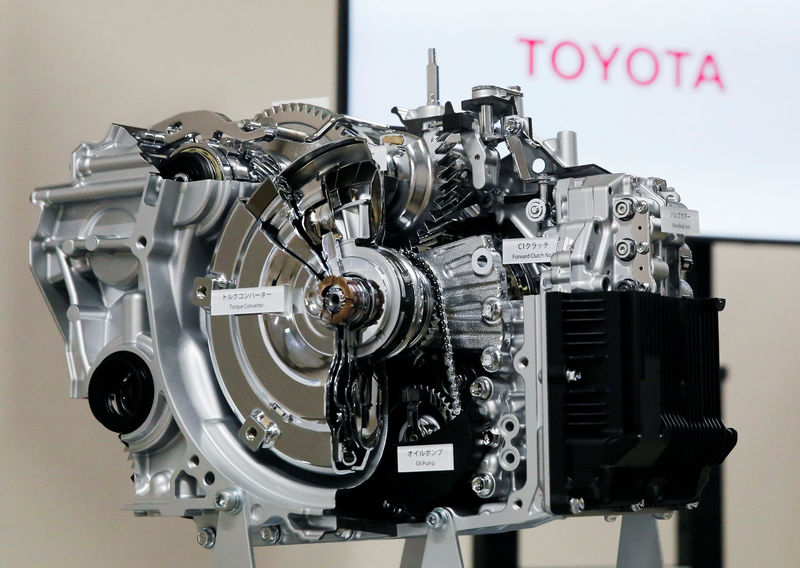By Naomi Tajitsu
TOKYO (Reuters) - Toyota Motor Corp (T:7203) stuck to its commitment to improving petrol engines on Monday with new powertrain units, while flagging technologies which could find their way into electric vehicles (EVs) and hydrogen fuel cell vehicles (FCVs).
The Japanese automaker plans to keep refining its petrol engines and the hybrid technology it pioneered two decades ago while also developing battery operated cars as tightening global emissions rules drive a race for longer-range affordable EVs.
As high battery prices and range limitations restrain EV take-up, hybrids and plug-in hybrids would be dominant in coming years, Mitsumasa Yamagata, chief engineer at Toyota's power train product planning division, said.
Cars using petrol engines in some form would still account for around 90 percent of all vehicles by 2030, he added.
"Developing the most fuel-efficient powertrains using petrol engines and hybrid systems will be the best way to have an impact (on reducing emissions), and we remain committed to this," he said at a briefing on Toyota's new 2.0 litre petrol engine and hybrid systems, which can improve fuel economy by 18 percent and 9 percent, respectively, over its current systems.
"At the same time, we will be able to use the technology developed for these powertrains in EVs and FCVs."
Already lagging Nissan Motor Co (T:7201), General Motors (N:GM) and BMW (DE:BMWG) in bringing a mass-production EV to market, Toyota has ramped up its EV development in the last year or so, pledging to add more than 10 EV models to its product line-up in the early 2020s after long touting a green-car strategy focusing mainly on hybrids and FCVs.
Last week it announced it had developed ultra-powerful magnets containing fewer rare earth metals which can be used in EVs, while it has also partnered up with Panasonic Corp (T:6752) to develop EV batteries.
Yamagata said that components for petrol vehicles could also be used in EVs, including a new "launch" gear used in Toyota's continuously variable transmission unveiled on Monday which works with a smaller belt drive to enable smoother, more efficient initial acceleration and final deceleration.
Industry experts anticipate that take-up of EVs will pick up faster than Toyota expects as decreasing battery costs result in a cost parity between EVs and gasoline-engine cars around 2025, but some say that it could leverage its lead in hybrid technology to help stay competitive during this transition.

"Toyota has been developing its hybrid technology since the 1990s and has been improving it all along. This is complex technology which would take a lot of effort (for others) to develop originally," CLSA analyst Chris Richter said.